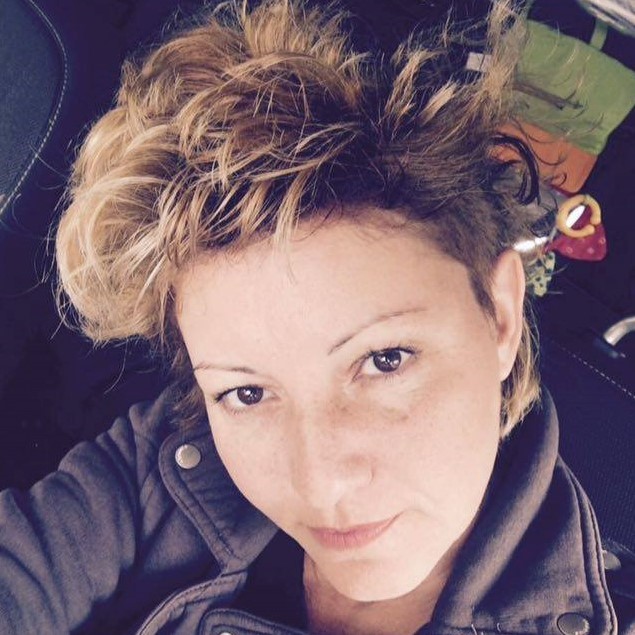- Home
- Rokdim Nirkoda 104
- Every Person Has a Name
Every Person Has a Name
Lehakat HaStudentim Shel Yerusalayim Celebrates Dan Biron’s 80th Birthday
- Translation: Ruth Goodman
- Translation: Tzipi Shragai
Crowds of people slowly gathered in the lobby of the hall in Mevaseret Zion. All the distinguished guests came to celebrate Dan Biron‘s 80th birthday. Plates overflowing with the best of everything were placed on the tables for the distinguished guests who kept arriving and soon would eat their fill of the land’s fish, milk and honey and all its bounty.
The conversations between the guests were not at all idle talk. These were conversations that delved into the depths of memories of the beautiful days they had spent together; what they all had in common was “Lehakat Ha’Studentim Shel Yerushalayim – The Jerusalem Student Performing Troupe” directed by Dan Biron, the troupe’s director for many years, and now the musical director who had already become a legend for everyone.
After a while, a sturdy, broad man entered the hall lobby with large and confident steps. His grey hair curls down to his shoulders. On his head is a hat in shades of brown. “Hello everyone” he thundered in a low and deep voice, befitting a man whose presence precedes our time. Between his slightly dry lips was pressed a cigarette seeking a light. This is Dan – Dan Biron; it is clear to him that his long number of years was only semantics and that an entire life is still ahead of him…
By the time everyone entered the spacious studio from the narrow lobby and took their place, the entire band of musicians was already sitting on the edge of the stage and they began to play.
Immediately, the troupe’s dancers leaped into the center of the dance floor and started dancing, being drawn into a time machine to beautiful places and to the biggest festivals in the world in which they had participated as a performing troupe. The connection between them seemed natural and flowing; the smiles on their faces showed the enthusiastic audience how much fun they had while they had been in the troupe.
Lehakat HaStudentim Yerushalayim – The Jerusalem Student Troupe is a dance troupe which was founded in 1956 by a group of students from Jerusalem, headed by the late Dr. Dan Ronen. The troupe soon became one of the leading folklore ensembles in Israel. The troupe was considered the Ambassador of Culture and Folklore of the State of Israel when it was among the first troupes to represent the State of Israel at many festivals around the world and won dozens of awards.
The Lehaka focuses primarily on Israeli Jewish folklore. The troupe’s repertoire is comprised of dances, songs and melodies of Israeli and Jewish folklore. The repertoire presents the ethnic folklore of Jewish communities from Yemen, Iran, Turkey, North Africa, the Balkans, Romania, Poland and the former Soviet Union. In addition, the show features Israeli works with a Mediterranean character and flavor.
The Lehaka’s dances and songs are always accompanied by an orchestra of acoustic instruments.
Every person has a name
Given to him by God
And given to him by his father and mother
Everyone has a name
That was given to him by his stature and way of smiling
Zelda Mishkovsky
Dan’s Bar – “Birman”
Dan Biron – that’s the man’s name. He is indeed tall and the way he smiles is determined by the sounds of his favorite passion – the accordion.
“Play something for me …” the woman with curly hair begged him; “Something good, old …”, she continued her request.
Dan took his guarded accordion out of its tight case by holding it with two firm palms. Dan‘s long fingers moved about on the accordion keys on one on one side, and on the tiny buttons on the other, and began to play with decisive precision.
Night. January. Jerusalem. Heavy rain rinsed and brushed the rectangular stones of this city and smoothed them even more. Moments earlier, I was on my way to “Dan’s Bar” – “Birman” is its name. I entered the bar and was greeted by a live band of musicians. That evening a live band played, just like every night at a bar.
The bar walls are covered with works of art by the best painters in Israel in addition to rare items by talented artists from various fields. On the left side of the bar, a model sat on a high bar stool and in front of her, a group of people came who to sketch, listen to good music and drink something warm. To the right of the bar door sat two guys with thick beards wearing a shtreimel, a black yarmulke, who sang along with the band with typical ultra-Orthodox joy, to good American music. Among them sat Dan Biron, and he tells:
This place reflects me. When I retired, I decided I wanted to have a place that would have a live show every night. Every day there is a different kind of music: Jazz, Mexican, Dixie Lite, a jam session and more. And on Thursdays, together with my band, I play Balkan music which I love very much. I’m a director, and my greatest excitement is when I’m planning something and it comes out exactly the way I wanted. That the decor, the recording technician and the accessories – everything will reach the optimum. I directed a lot of TV shows, such as: “Esek Hanahar Ha’adom”, “Gazoz”, “Od Lahit”, “Ad Pop” and others …
Family:
Both me and my wife Sari (Sari Raz – the journalist, the radio and television personality. H.L.), are broadcasters. We have been broadcasting for more than sixty years. Before television, we worked in radio. Sari has been a broadcaster since the age of 16. We have been married for 55 years. I spent more time in editing rooms than at home. The children grew up into this world. They traveled with me and Sari all over the world.
My life has been constantly spent doing things. When I was a news reporter, I would bring a new story every day. You are busy all the time and do not have time for unnecessary contemplation.
My father, Dr. Avraham Biron, died fifty years ago. He immigrated to Israel from Ukraine when he was one year old and lived all the rest of his life in Palestine, during the Turkish Mandate. My father was a veterinarian. He studied at Reali in Haifa. When he was 17, he graduated from school and by the age of 21, he had already received his doctorate. My father thoroughly knew twenty different languages. He was invited to translate. My father translated about forty science books from Russian into English.
When I was a child, among other things, I also experienced the War of Independence. My father was a fighter in Jerusalem at the time. I went through the childhood of a “siege boy.” A siege boy eats everything. There wasn’t any food that was not eaten. At the time, only one bucket of water a day was used for the whole family. There were no eggs; We ate egg powder. There was no oil. They used everything – roots, chubeza and various plant leaves. To this day, the effects remain – I eat everything and do not waste water.
Nowadays I miss my mother very much. My mother and I were very close. She raised me and my younger brother who was two and a half years my junior. My brother was born hard of hearing and my mother cared for him with endless devotion. She was born in Germany; she was a teacher of crafts and Hebrew. She passed away three years ago at the age of 98 and a half. She would come to my bar frequently and prepare her own famous lemon pie here. My son learned how to prepare the lemon pie from her, but he always says that when he prepared the pie with her, it was perfect, and when he prepares it himself, it never comes out the same.
A lot of people would gather at my parents’ house. Almost every week, friends of my father would come and sing songs in Russian accompanied by a mandolin and balalaika. As a child I already knew how to sing dozens of songs in Russian, but I did not understand the meaning of the words. I can still sing them today.
Would you like to achieve something more?
People always want more, but in general, when I look back, I do not understand how I could have accomplished everything that I did and I did a lot.
You also ran for a political position…
As for politics, I ran as the head of “Green Leaf.” I’m actually pretty comfortable with the fact that I did not win, because then I would have had to hang out with lawyers and besides, it is music that I love… At that time, they came from everywhere to interview me and precisely in this way I received a great deal of exposure.
Do you think there could be a replacement with your talent for the troupe?
I wish someone would come forward and replace me. Unfortunately, there are not many high-level accordionists. As the troupe’s musical director, I make sure that the music will best serve the dancers, and that the sounds represent the tastes, smells and colors of Israeli folklore. My specialty is Balkan music.
Professor Tamar Raz, please tell us a little about yourself and how you came to dance in the Lehaka.
When I was discharged from the army, I came to the auditions. My girlfriend auditioned, and I came too and was accepted. That was October 1988. I was just one of the dancers for four years and then I became the instructor and artistic director for over 15 years. During that time, I studied chemistry at the Hebrew University.
Tell us something about the Lehaka.
The Lehaka is a total complete family. We are in touch all the time and to this day, we remain very good friends. The members of the troupe will always come to help in a time of need and will remain my lifelong friends. We performed a lot all over the world and we also had performances of a special nature. For example, on one of the trips to Mexico, it turned out that we were going to appear in a prison, for the prisoners… I remember that they stamped us. We performed in the yard, played basketball with the inmates and then realized that we were actually performing in front of rapists, thieves and murderers.
Together we shared small and big experiences that make us laugh to this day. Throughout the years, everybody knows everyone else in the troupe. We also meet at “Birman” for every event that takes place. Dan invites everyone, and we are very connected.
Throughout the years and performances, we have always danced to live music. Even at rehearsals. We – the dancers and the troupe’s orchestra are one and the same both in Israel and abroad. The dances that the Lehaka performs are vintage dances; some were created fifty years ago, such as “Yamin U’Smol”, as well as more contemporary dances. The troupe also dances Balkan, Bulgarian and others. The Lehaka still exists and dances to this day. While the dancers are young, the orchestra has been maturing. The orchestra consists of almost the same musicians from then until now with changes here and there.
Tell us about Dan Biron, the man.
Dan is a man of the people. He is a total friend with the character and spirit of the Lehaka. We always followed him. He does everything for us and we do everything for him. Dan is such a funny, witty and smart man. He always says he’s the only one who has read my doctoral dissertation… he molded the Lehaka into a family.
None of us ever made money from the Lehaka, ever. I never wanted to get paid. I did not want to pollute this world. I wanted to keep it nice and clean, and so did the entire Lehaka. No one gets paid. When the Lehaka makes money from performances, the money goes towards overseas performance trips. People join the Lehaka to dance for their soul and not for financial gain.
Most of the dancers in the Lehaka have danced for many years. They voluntarily spend at least seven – eight years in the troupe. This gives it a certain kind of power, a meaning. There’s something very pure about it; it’s always kept my innocence, my naivety.
There was also a lot of charm in traveling to festivals. Dan would stand up straight, and he’s a very tall guy, and that would somehow magnetize the passersby. Everyone was drawn to us, to hear and see us. There was a special charisma. Everyone danced, played, sang and drank. Just a beautiful world. It maintained the innocence that had always been a part of me. There is something very powerful about this “togetherness” of ours. All Lehaka members are friends with no political differences or any differences at all. And Dan is a person you can always look to and learn from.
Dan is eighty years old and lives life to the fullest. After retiring, he opened a successful bar. He cultivates the music. He is constantly with young people and living life in a good way. Dan is a people person.









Comments
התראות